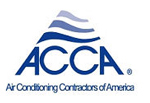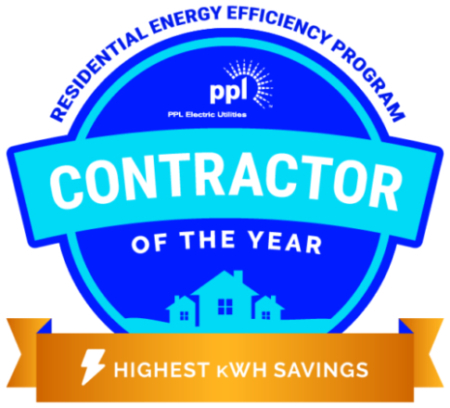How to Remove Humidity From Your Home
Do the windows in your home always seem to “fog up” whenever they’re closed, and you’re running the HVAC system? Does your home have an unpleasant musty smell? Does the air inside your home feel damp and leave a cold, clammy feeling on your skin? Are you noticing signs of mold growth in the basement or other moisture-prone areas of your home?
These are just a few of the many signs of excess humidity in a home. While a certain amount of moisture in the air is necessary — a 30-50% relative humidity level is suitable for most people — a higher level (60-70%) will decrease your comfort and possibly create health issues for you and your family.
Why Should You Remove Excess Humidity From Your Home?
Problems resulting from too much humidity can include:
- Doors and windows that stick, making them difficult to open and close — wood retains moisture, which causes it to swell and deteriorate over time
- Sleeping issues, especially during the more humid summer months
- Formation of mildew on fabric which can damage furniture and clothing
- Mold spores that can lead to respiratory and other health issues in some individuals
- Corrosion of metal objects due to excess moisture
- Feeling hot and uncomfortable even when your home’s air conditioning system is functioning properly
- Higher energy costs — many homeowners attempt to combat the dampness by overworking their HVAC system
Many of these issues are cumulative — the longer they’re allowed to continue, the greater the damage they will cause over time.
How to Lower the Humidity in Your Home
There are several steps you can take to reduce moisture and humidity inside your home:
- Use exhaust fans in the kitchen, bathrooms, attic and basement to keep the air dry in these damper areas of your home. If you do not have fans, crack the windows for a few minutes. Also, make sure return vents are unobstructed.
- Take shorter showers with cooler water and reduce the water flow.
- Vent your clothes dryer to the outside of your home — you can also hang your clothes outdoors on a clothesline to dry. After every load check the vent trap and have the vent cleaned annually.
- Repair/seal leaks in doors, windows and the foundation.
- If your basement or crawlspace has a dirt floor, cover it with plastic to create a moisture-proof barrier.
- Do not overwater plants you keep inside your home — the soil will cause the water to evaporate, which increases humidity.
- Insulate hot and cold water pipes to prevent moisture from saturating the environment.
While each of these techniques may only make a small contribution to resolving your humidity problem, the combination of multiple methods can make a noticeable difference in the comfort of your home.
What Can You Use to Remove Excess Humidity?
For more challenging humidity issues, you may need to install a dehumidifier to remove the excess moisture content from the air. Many homes throughout the West Shore and Harrisburg areas rely on portable dehumidifiers in basements and other damp areas. These do a fair job and are somewhat easy to operate; they do however need to be drained or dumped regularly and cycle on and off causing them to use a lot of electricity for little output. Whole-house dehumidifiers can handle 10 times what a portable unit can cover and can be freestanding or ducted into a basement or existing HVAC system. These systems have a huge advantage over portable models, and can even help ease the burden of your homes air conditioning system during our sticky summer days.
Contact Zimmerman to Learn More About Your Home Dehumidifier Options
Zimmerman Plumbing, Heating & Air Conditioning is your source for a whole-house dehumidifier that will increase the comfort of your home and protect it from damage caused by excess moisture. We also provide expert dehumidifier sizing and installation service. Contact us for more information and a free estimate today.










